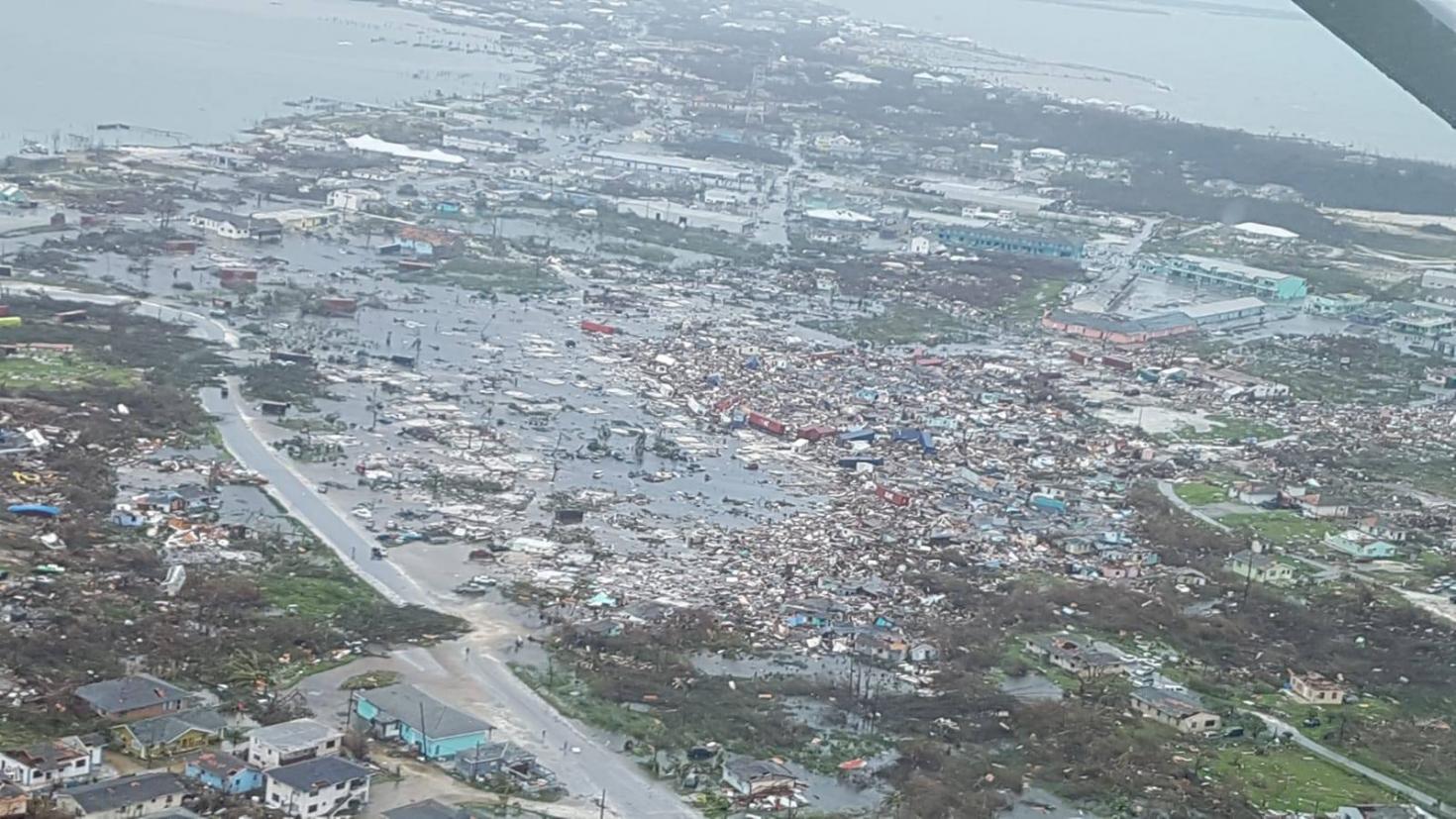Collaboration with international agencies, the rebuilding of protected environments and the rehabilitation of agricultural chains are areas for immediate attention.

San José, 6 September 2019 (IICA) – With the pain and fear still present amidst the devastation unleashed by Hurricane Dorian—the impact of which will be felt for years—the Bahamian team of the Inter-American Institute for Cooperation on Agriculture (IICA), headed by Acting Representative Shacara Lightbourne, resumed duties and is focusing primarily on how to assist in rebuilding agriculture in the country.
From Nassau, where she lives, Shacara Lightbourne kept in contact with the country’s Minister of Agriculture and Marine Resources, Michael Pintard, who had to be rescued when his home in Grand Bahama was literally immersed in water. Now that the government is operational mode again following the climate disaster that killed at least 20 people, IICA will participate in discussions on how to rehabilitate the country’s agriculture sector.
Rescue and recovery efforts continue on the islands of Abaco and Grand Bahama in the aftermath of this historic and monstrous storm. The country received commitments for donations and assistance from countries such as Barbados, Belize, Brazil, Canada, Dominica, Jamaica, the United Kingdom and the United States, as well as from charity organizations and private corporations.
After a preliminary assessment of the terrain, the IICA experts concluded that the areas that are suitable for cultivation will be destroyed for some time, having been inundated with saltwater, and therefore will need to be rehabilitated to regain their former levels of production.
Lightbourne maintained that, “We will have to assess how to approach agriculture in our country. We will have to discard traditional methods of producing food and look to climate smart models, in terms of energy, water and resources. Given our limited island terrain, we must use technology in every way that we can”.
“We will need scientists and agronomists to assist us in determining the best way to produce food. This is the worst hurricane that I have experienced in my life. Everything is submerged in water”, she added.
Abaco is a very important island for tourism and also houses the largest commercial poultry production facility in the country. It is also the site of various hydroponic and aquaculture projects. Half of Abaco is under water. In addition to poultry rearing, The Bahamas also produces sweet potato and vegetables in protected environments, which have now been destroyed by the inclement weather brought by Dorian.
With a total population of approximately 400,000 persons, more than ever, the Bahamas will need sustainable agricultural systems, with a crucial element: water. The Bahamas has no rivers and depends entirely on rainwater.
It also has fresh underground water, primarily concentrated in Abaco and Grand Bahama. The country will need water harvesting techniques, as well as assistance in the clean-up efforts, donations of clothing and food. It will also need the support of experts to determine the best way to resume agricultural activities and to restore the production capacity of its terrain.
Therefore, from its headquarters in Costa Rica, IICA established a crisis group to provide immediate assistance to agriculture in the Bahamas.
Manuel Otero, the Director General of IICA, explained that, “IICA’s rapid response priorities include collaborating with other cooperation agencies, rebuilding protected environments and rehabilitating the agricultural chains that are of greatest importance to The Bahamas”.
More information:
Beverly Best, Director of External and Institutional Relations.











